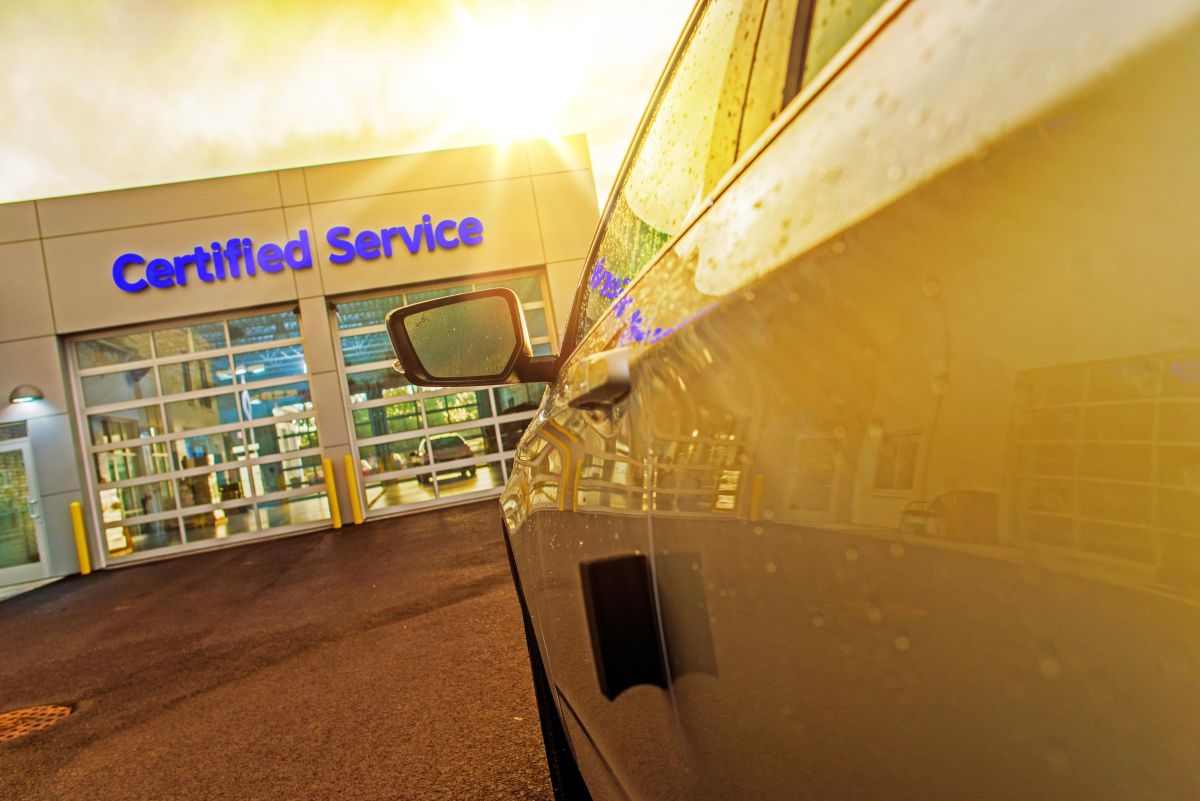Sales of dealership collision centers pose multifaceted benefits, both for dealerships selling and the MSOs that often purchase. These changes aren’t without challenges, but a consolidating industry means these moves will likely become more common in coming years.
 Madeleine Roberts Rich.
Madeleine Roberts Rich.
“It’s a slow and steady trend that we've seen for many years,” said Madeleine Roberts Rich, senior associate with Focus Advisors, a firm that represents MSO owners as they grow or exit. “The reason is that the collision repair industry is consolidating. As we've seen, there's a handful of consolidators that are establishing more and more market share primarily through acquisitions.”
When Dealerships Sell
So, why are dealerships selling? It’s primarily to streamline operations and enhance focus on automotive sales, reducing the added management needs for collision repair operations. Keeping up with technology and the hiring competition for highly trained technicians can be prohibitive in keeping a shop going.
“The game is much more expensive than it has been in the past, and the tech workforce really drives volumes,” explained David Roberts, Focus Advisors founder and managing director. “So, if you don't have a steady volume of vehicles going through your collision repair shop, people are going to look around where they can make more money, and they'll almost invariably find an MSO in the area that is doing more work.”
 David Roberts.
David Roberts.
And dealerships that find a buyer free up significant funds.
“They have cash that they can then use as capital to invest in their core competency if it's expanding their existing dealership operations in place or then trying to expand to a new location,” Rich explained. “They have freed up cash in this liquidity event, and in a high interest rate environment like we’re in, access to cash can be quite important.”
There’s also built-in opportunity for sale of more parts for dealerships as they continue to funnel repairs from vehicle buyers toward shops they’ve sold. This scenario is beneficial when a dealership sells the shop but keeps the real estate in a long-term lease situation.
One drawback Roberts noted in that scenario is that buyers will likely extract regular repair discounts from a dealer, but the volume of business can make up for that factor. Indeed, Rich said, lifetime customers often mean lifetime servicing of a vehicle or multiple vehicles: It’s one more reason to make sure a collision center is in capable hands.
When MSOs Buy
MSOs looking to purchase dealership collision centers get the benefits of having a staffed location with ready equipment, and ostensibly, they start out with dealership customers. That doesn’t mean there aren’t potential hurdles, though.
These purchasers, explained Roberts, need to be sure they’ll really have access to a steady pipeline of customers as dealerships’ modes of operation often differ from those of shops that have been historically focused strictly on repair.
“If you're an MSO buying a dealer shop, you really do have to have your act together,” Roberts said. “The dealer is trying to manage a bunch of different things, and if they've got a bunch of different nameplates and they're really into selling new and used cars and servicing those cars, then getting access to repairable vehicles today comes much more through insurance companies. And most dealers don't have arrangements with insurance companies in which they participate in direct repair programs.”
Making sure a shop is the right fit is also important for an MSO looking to purchase.
Joe Hudson’s Collision Center, an-Alabama-based MSO, which recently entered the dealership shop acquisition trend by buying Bedford Nissan Collision Center in Bedford, OH, is an example of this factor. Bedford Nissan’s existing certifications made it a fit for acquisition, Joe Hudson’s Chief Operating Officer Cameron Dickson explained in a press release.
“Identifying growth opportunities that align with our standards for quality and outstanding customer service is crucial,” Dickson said. “Bedford Nissan Collision Center’s numerous OEM certifications and I-CAR Gold Class recognition make it an ideal partner. This acquisition allows us to quickly integrate our operations and continue delivering the top-notch service our customers have come to expect.”
The Transition
Dealership sales are on the rise right now, according to a report released in June by Kerrigan Advisors, an auto buy/sell advisory firm. The first quarter of this year, the firm reported, saw a 38% rise in dealership sales compared to first quarter of 2023.
It’s important for dealers to consider how their collision operations factor into these sales, and transition of body shop ownership can happen in a number of ways. Some dealers just want to be out of the game altogether, and that can mean moving the shop off their premises.
“They just want to sell the business,” Roberts explained. “They don't get as much for the business, but they repurpose the body shop into more service space.”
In this case, he said, a buying MSO might move the business, its equipment and its employees to an existing shop that has capacity.
Dealers will also participate in the aforementioned long-term lease situation. This, Rich pointed out, makes for a built-in credit tenant and a lowered capitalization rate. Lower cap rates (annual net operating income divided by market value) indicate less risk and higher value for commercial real estate.
But how does a dealership reach this point? Long-term lease rates, Rich explained, are based as a percentage of trailing 12-month sales for the body shop. The valuation of the body shop itself is then based on adjusted EBITDA (earnings before interest, taxes, depreciation and amortization) figures.
Getting accurate numbers through this process is especially important as the selling of a business is a bespoke thing, and it’s a process worth pursuing fully, Rich said.
“What we, as investment bankers, hate to see is for owner operators to sell themselves short by not fully understanding what their true adjusted EBITDA is,” she explained. “Because with selling a business, it's not like selling a house where there's tons of records on Redfin or Zillow.”
Some dealers want to sell the whole business, dealership and all, and in those cases, it can be beneficial to look at chunking up the transaction, as selling the body shop separately can result in more money, Roberts contended.
Separating the body shop from the rest of the sale allows consolidators and MSOs to step into the equation. Sometimes in these situations, the real estate changes hands, and there’s a lease opportunity for the new owner. Body shop acquisition may not be a priority for another dealer looking to acquire the business, so the profit opportunity can be less there.
“If they just want to sell their body shop, the process is different because dealers are always being approached by other dealers that want to buy to bulk up in their market, but they're not often being approached by people that want to buy their body shop,” Roberts explained.
Doubling Down
However a sale takes place, offloading a body shop can be relief for a dealership owner looking to free up cash. And it’s a way for dealers to simplify operations and for MSOs to step up and do what they do best.
“The body shop business and the business of selling cars are very different, and they're both getting a lot more complex,” Rich said. “So, splitting one's focus, especially if the body shop, as involved as it is, is only a very small fraction of your annual sales -- it's just going to pull focus. Doubling down on what you do best and then getting a best-in-class operator to run the body shop side is an advantage.”















Elizabeth Green